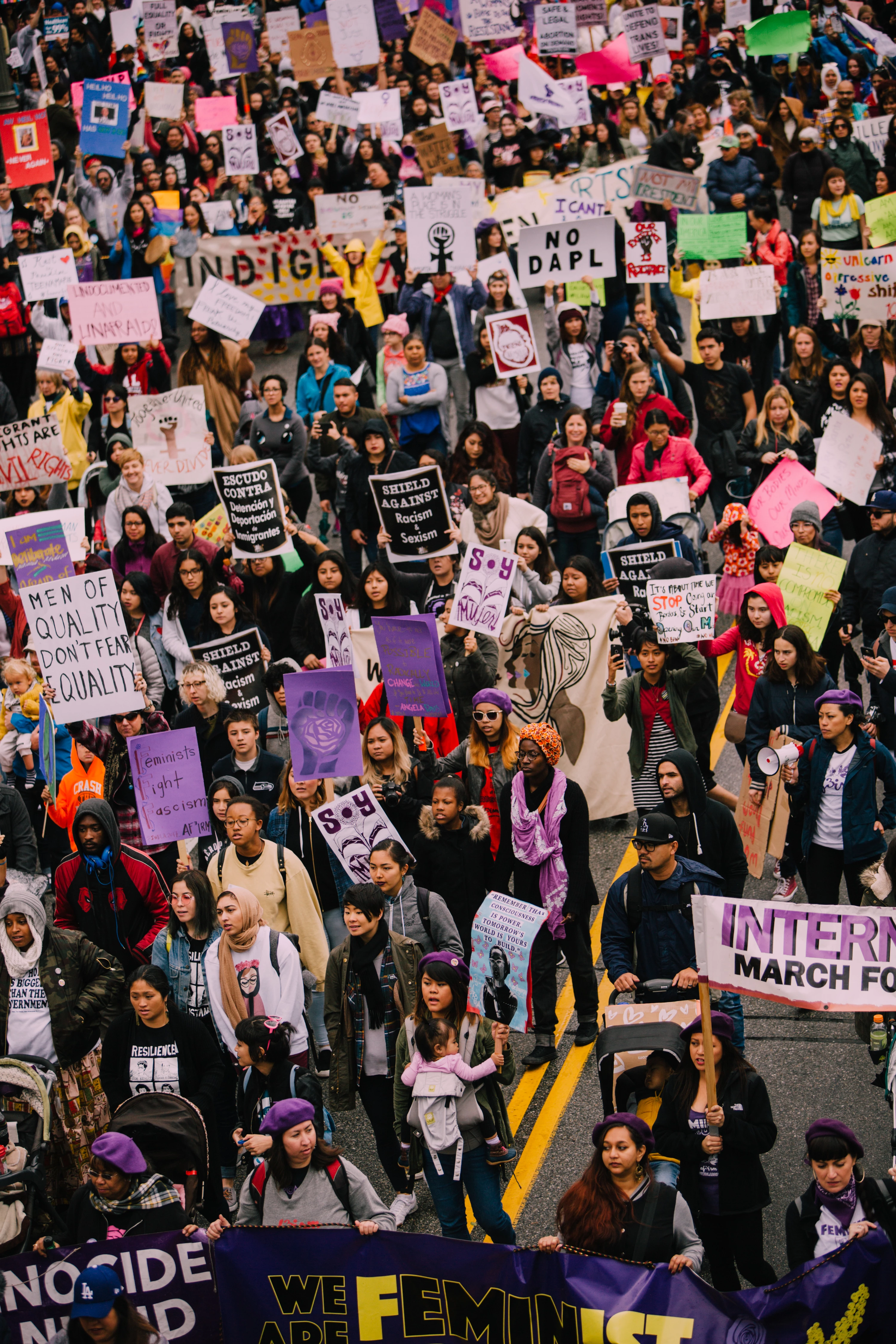
One of the UK's biggest businesses can't pay women equally, so is the future really female?
On January 7, the BBC’s Carrie Gracie announced that she was stepping down from her role as China Editor over “pay disparity”.
Carrie Gracie is a journalist with over 30 years of experience. She speaks fluent Mandarin, and has run the risk of reporting in one of the world’s most dangerously censored countries. Hats off to her, honestly.
So why is she still not worthy of equal pay like her male colleagues in the UK’s biggest media business? Oh I’m not sure, is it because she has two X chromosomes? Yes, it would appear so.
Being a woman these days isn’t harder than ever, but it still sure is a slog, right? Carrie sadly resigned from the BBC over her unequal pay, and although many were truly frustrated and angered by the situation, she has done an incredibly brave thing.
This marks significant change. As Carrie herself said in her email of resignation to the BBC: “Enough is enough.”
In a ‘post-Weinstein’ world, it is true that a woman’s right to equality - not only in pay - is being spoken of more.
Tarana Burke’s #MeToo campaign (made a trending topic by Alyssa Milano in October 2017) sparked thousands of us to join in the wake of speaking up about sexual harassment. It even got men on board, and we need that because it signifies… Yes, equality!
It made high-profile celebrities wear all black to the Golden Globes on January 7, to mark their determination to address a centuries-old problem.
Just where does equality begin for women, and where does equal pay come into that? In November 2017, we had Equal Pay Day and we all know why, sadly.
But - and it pains me to say this - campaigning can only go so far, as a report published this week by the Independent revealed that the gender pay gap is still a major issue.
Take some of the biggest, most popular businesses in the UK. EasyJet supposedly pays its male employees 53 per cent more per, whereas Phase Eight could pay a man 65 per cent more per hour.
It’s sickening. And it shows that Carrie’s email was, unfortunately, necessary.
This wasn’t an act of one woman wanting the limelight to discuss her own woes. Carrie wanted to address this as a wider issue, but even her own organisation tried shutting her up - the BBC thought they could settle her case and pay her £180k instead of £135k.
I know, many of our salaries probably feel like a drop in the ocean for Carrie, but in reality this is not about how much, it’s about being paid the same. She would have probably walked away with less money had it meant equal pay.
Carrie’s resignation was meant to address the entire world, and it’s done a great job so far.
The journalist rightly said: “I have never sought to make myself the story and never publicly criticised the organisation I love.”
She declined the BBC’s offer. Rightly so, because this isn’t about being paid more. It’s about being paid the same as your male peers. What. Is. So. Difficult. To. Fathom?
-Sighs deeply- This is a topic that needs to be addressed and acted upon. Women cannot and will not be silenced. I honestly am appalled the BBC offered Carrie more money so she could keep quiet.
What message does that send out to women? Think about it, it’s just another way of putting us in our place, it’s demeaning. Christ, make it stop.
We don’t want generations down the line to do the dirty work for us - it needs sorting, now. Our daughters, granddaughters… Do you really want them to be campaigning for this stuff in 30 years or so?
I hope 2018 - and so forth - doesn’t sweep this under the dusty, dirty rug of inequality that needs lifting and chucking in the bin… Equality for everyone in every single business with the same damn pay, can you imagine that?
Looking to promote your product/service to SME businesses in your region? Find out how Bdaily can help →
Enjoy the read? Get Bdaily delivered.
Sign up to receive our popular morning National email for free.






 B Corp is a commitment, not a one-time win
B Corp is a commitment, not a one-time win
 Government must get in gear on vehicle transition
Government must get in gear on vehicle transition
 A legacy in stone and spirit
A legacy in stone and spirit
 Shaping the future: Your guide to planning reforms
Shaping the future: Your guide to planning reforms
 The future direction of expert witness services
The future direction of expert witness services
 Getting people into gear for a workplace return
Getting people into gear for a workplace return
 What to expect in the Spring Statement
What to expect in the Spring Statement
 Sunderland leading way in UK office supply market
Sunderland leading way in UK office supply market
 Key construction developments in 2025
Key construction developments in 2025
 Mediation must be part of planning process
Mediation must be part of planning process
 From apprentice to chief financial officer
From apprentice to chief financial officer
 Don't stifle growth with apprenticeship cuts
Don't stifle growth with apprenticeship cuts